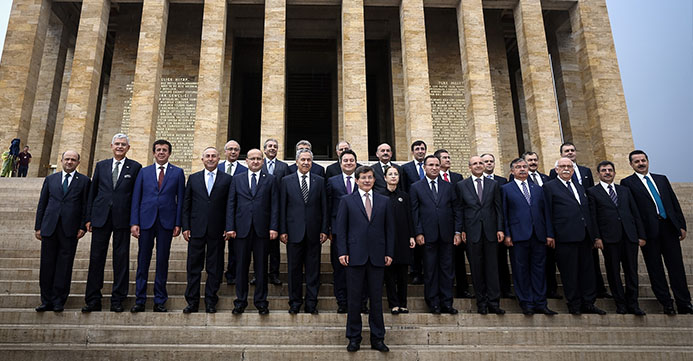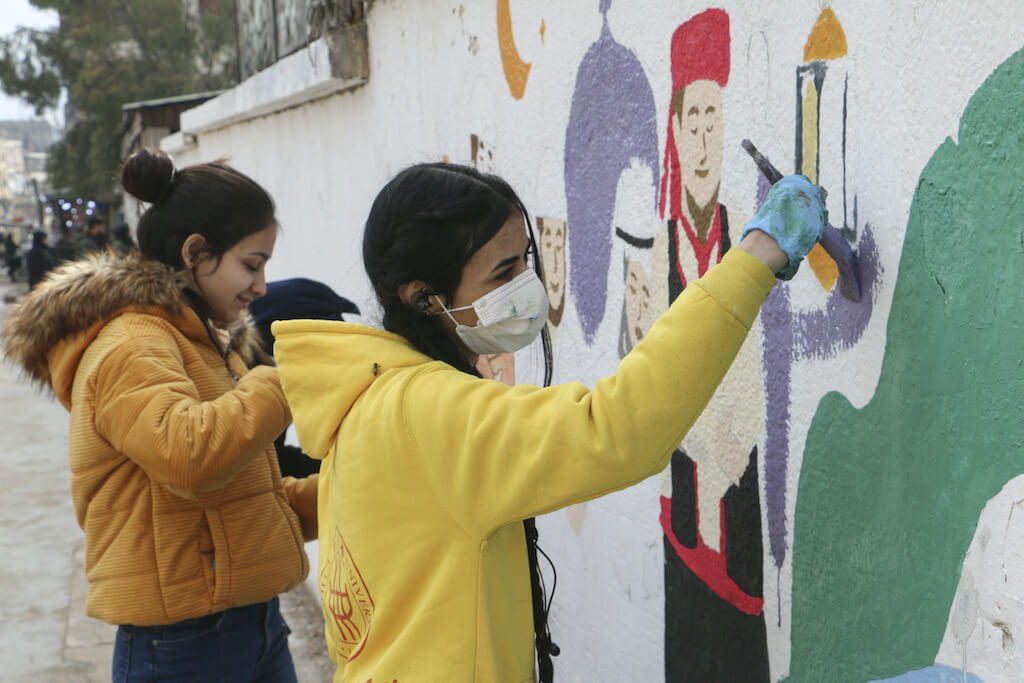Following the unprecedented and smooth leadership transition within the government and the Justice and Development Party (AK Party), Turkey's new political constellation that is likely to influence the next decade began to crystallize. As the first popularly-elected president of Turkey, Erdoğan has started to focus on global issues, foreign policy and macro-level policy areas deemed vital in terms of long-term political and economic stability. Meanwhile, he carried his whole advisory team from the office of the prime minister to the presidency thereby shifting the political locus of the existing governing mechanism. In the medium term, Erdoğan's position is most likely to be galvanized through "de jure" measures as the president of an emerging power who focuses on rapid socio-economic development and improvement of the country's standing in the global pecking order. Ahmet Davutoğlu who has been so far a decisive figure on the formulation of AK Party's foreign policy philosophy and inter-cultural relations vision and, on the other hand has been appointed as the prime minister responsible to ensure smooth policy coordination among government departments and swift implementation of the policy agenda.
The 62nd government that was formed last week undoubtedly carried Erdoğan's seal as the majority of previous ministers, most notably those responsible for economic policy, kept their posts and Davutoğlu kept the possible changes to a minimum. The most vital policy priorities apparent in the configuration of the government were the resolution process regarding the peaceful settlement of the long drawn-out Kurdish issue and socio-economic development. Therefore, it was not surprising to see that Davutoğlu, as prime minister, personally undertook the coordination of the resolution process deemed critical for political stability and two of the most important additions to the cabinet, namely Numan Kurtulmuş and Nurettin Canikli. They are both important figures who could provide support to their colleagues entrusted with the conduct of economic policy along with their specified responsibilities.
Although the AK Party government has produced satisfactory rates of economic growth and a stable investment environment in the last decade, the economic narrative based on improvements on the 2001 International Monetary Fund (IMF) program seems to have run its course. AK Party elites now accept that given the relatively moderate rates of growth during the last two years and the apparent risks of the middle income trap, which could jeopardize Turkey's economic impetus, require a substantial overhaul of the current economic narrative. The emphasis on macroeconomic stability, fiscal discipline and financial prudence - vital as a precondition for long-term development - are not enough to stimulate expansion of the real estate sector, industrial modernization and technological prowess. Although there were no personnel changes in ministries coordinating economic policy to avoid unnecessary external economic shocks, it is no secret that both Erdoğan and Davutoğlu favor a transition to a more real-economy oriented economic model in which matters of manufacturing exports, high-tech products and small and medium sized enterprises will be emphasized more heavily.
This is not without good reason because despite ongoing macroeconomic stability, Turkey's current economic structure, characterized by low local savings; dependence on the inflow of international funds; disproportional dominance of financial, service and construction sectors at the expense of manufacturing and high-tech investment and a business community reluctant to face head-on competition with global leaders, is not compatible with the vision of being an emerging power. Therefore, it is most likely that the seeds of the critical transition in the existing development model will be sown during the reign of the first Davutoğlu government, but the real and comprehensive transformation will be realized after the general elections next June. Let us keep thinking about th








